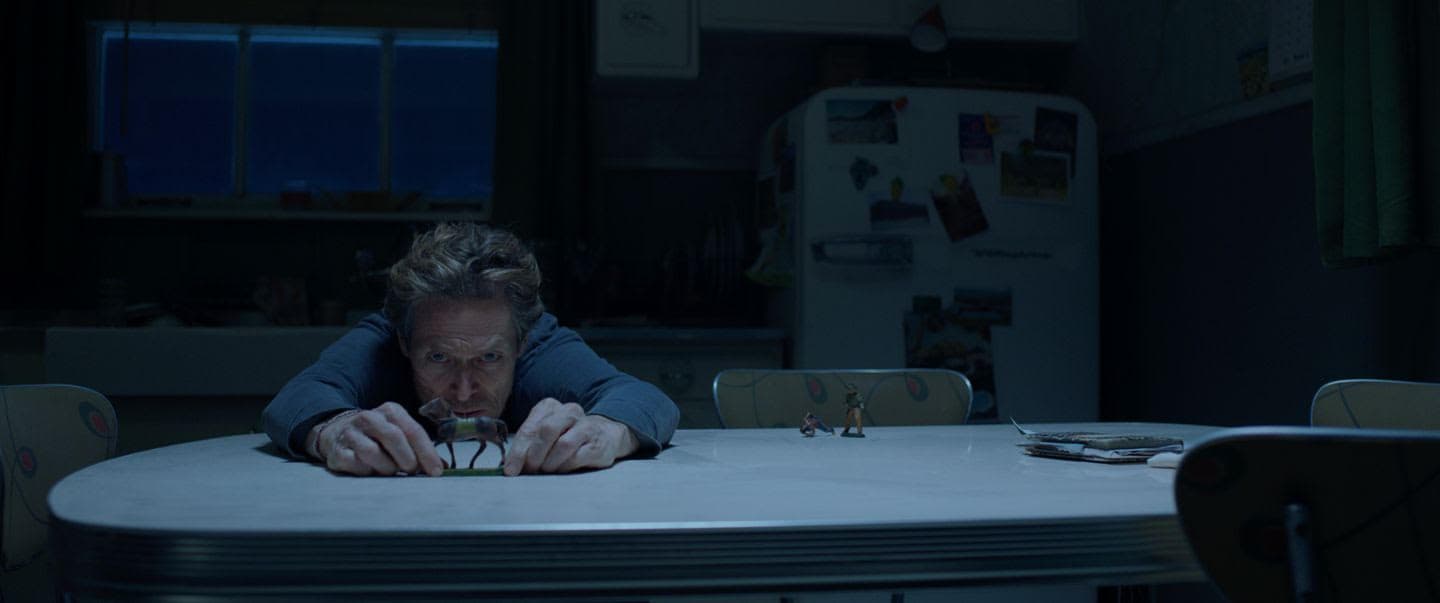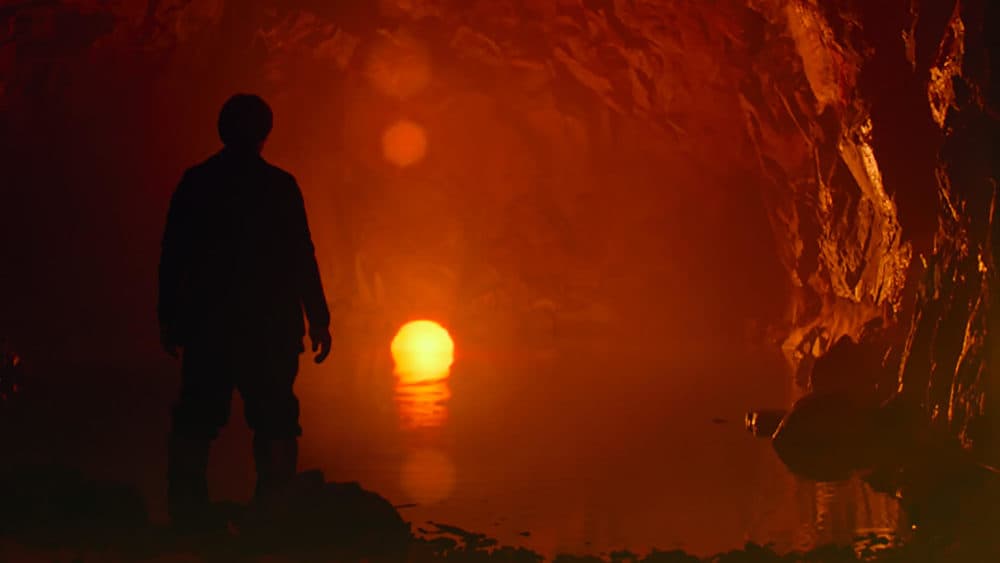Advertisement
Review
Abstract Psychodrama 'Siberia' Is Another Personal Exorcism From Director Abel Ferrara

Director Abel Ferrara’s “Siberia” comes billed as a story told in the language of dreams, though for those expecting conventional narrative satisfactions, it might seem more like a nightmare. This knotty, abstract psychodrama is the legendary scuzz-bucket auteur’s sixth collaboration with leading man Willem Dafoe, and the fourth film they’ve made together during the past decade, in what’s become one of the most fearlessly fruitful partnerships in modern movies. Last summer, Dafoe played Ferrara’s barely disguised alter-ego in the nakedly confessional “Tommaso,” starring as a frustrated filmmaker struggling with sobriety and his secret, self-destructive urges. While famous Ferrara protagonists like the “King of New York” and the “Bad Lieutenant” used to lash out in fury at the fallen world around them, as he’s gotten older — the hard-living filmmaker will be 70 next month, improbably enough — his movies have turned more inward and introspective. “Siberia” feels like another personal exorcism of sorts, and a bold leap into the unknown for these two artists.
Dafoe stars as Clint, a loner who works as a barkeep in a remote, snowbound tavern somewhere in the Arctic, serving Inuits and Russians whose languages he does not understand. Over the opening credits, we hear him reminiscing about fishing trips with his father and brother, a nostalgia that grows more sinister as the memory rambles on. Right away, our senses are rattled as scenes don’t seem to begin or end where they should, and Clint is photographed and edited in such a way that he appears to be observing himself as he arrives at work. There’s an incongruous electronic slot machine in a corner of the candlelit bar, but only briefly, and conversations are interrupted by quick glimpses of Dafoe being mauled by a bear. A pregnant woman (played by Ferrara’s wife Cristina Chiriac) disrobes and the two make passionate love on the floor before she vanishes as quickly as she arrived, leaving him bloodied in the harsh morning light.

Even a seasoned viewer of esoteric art films might find themselves politely asking, “what the hell is going on?” To which I can only say, fasten your seat belts. “Siberia” confounds with every cut, enveloping the viewer in a drifting perspective that adheres strictly to its own elusive, internal logic — like the way sometimes in your dreams, whatever you were just looking at isn’t what you’re looking at anymore, yet it doesn’t feel out of the ordinary at all that your cat just became your eighth-grade math teacher. Clint ventures into the dark basement of the bar and tumbles down the face of a cliff, exploring a system of caves with a sunset at its center. Snowy canyons become desert dunes before giving way to verdant meadows. Along this journey, he’s visited by visions of his brother and father (both also played by Dafoe) who speak to him in Nietzsche quotes and cryptic, stentorian riddles.
Here, I should probably interject that I can fully understand why this movie has been driving some folks up the wall since it premiered at the Berlin International Film Festival last February. (If this isn't your kind of thing, get ready for the longest 92 minutes of your life.) Yet for others of us, the word “pretentious” isn’t necessarily a pejorative, and it can be downright thrilling to watch two artists follow each other all the way out on a limb like this and start sawing it off. Dafoe’s background in experimental theater has seldom served him so well on screen, inhabiting the strange demands of “Siberia” with complete conviction. I’m hard-pressed to think of another actor one would so easily accept arguing with a sneering, shadowy reflection of himself in a puddle. Especially when the reflection is wearing welding goggles. These two have never been particularly worried about looking ridiculous, and this movie’s bonkers, outsized ambition is of a sort that easily invites ridicule from audiences unwilling to take the journey with them. After all, this kind of capital-A art film fell out of fashion ages ago. Ferrara and Dafoe are making cinema in a world that wants to watch television.
Even when I hadn’t the slightest clue what was happening in “Siberia,” I still felt like I understood the gist of it. The character’s exile is not just physical, and we eventually meet the woman and child he walked out on in warmer climes, which is presumably why the picture’s imagery is so preoccupied with fertility and rot. (There are wombs and antechambers everywhere, and you don't have to be Freud to guess what the damp walls of these caves were designed to look like.) Clint apparently abandoned his family to study “the dark arts,” a secret science that stands in for the struggle between an artist’s aspirations and the demands of domesticity that’s been a career-long fixation for Ferrara going back to his 1993 indie film industry drama "Dangerous Game," from which certain dialogue is repurposed here.

The movie's rife with references to the director's previous pictures: “Siberia” looks suspiciously like the script and storyboards his stand-in was preparing to shoot in “Tommaso,” and things finally come full circle in the film’s most ecstatic scene, which finds Dafoe dancing alone in a kitchen and singing along to Del Shannon’s “Runaway.” Die-hard fans will recognize this as the theme song to Michael Mann’s magnificent TV series “Crime Story,” for which Ferrara directed the pilot in one of his first gigs outside of porno movies and Times Square grindhouse flicks, when the dark arts at last became a respectable profession.
All that and there’s even a talking fish. Alas, like most of the characters in “Siberia,” it’s speaking a language Clint can’t understand.
